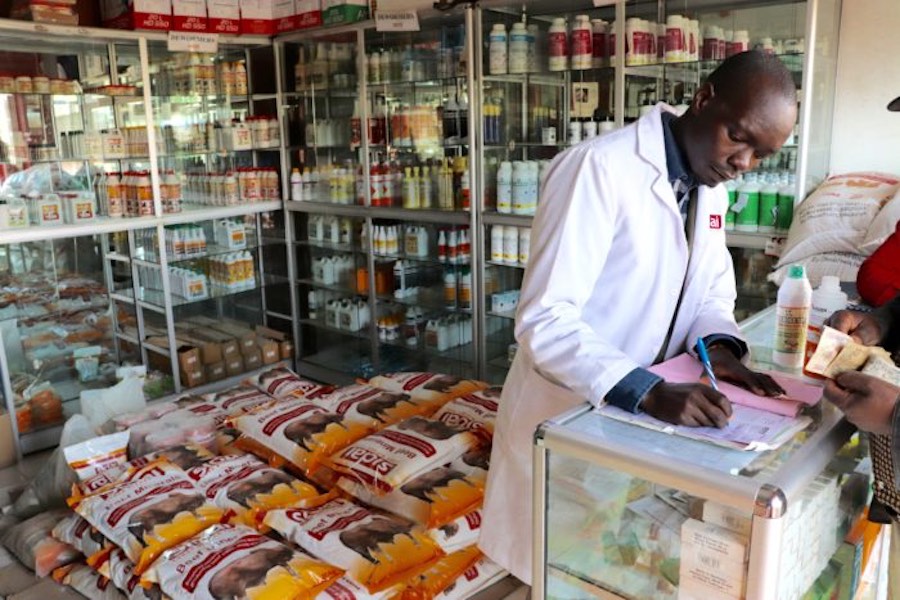ImpactAlpha, March 17 – Sidai Africa Ltd. was about to close its Series A financing round when Brexit struck. The Kenya-based company supports more than 200,000 sustainable farmers through its stores and services. Its lead investor, the U.K. agri-technology company Devenish, had to put its planned investment on hold, and Sidai was left in the lurch.
That’s when Open Road Alliance stepped in to provide a Sidai with a $250,000 bridge loan. Six months later, when the Series A round finally closed, Sidai paid back the loan in full.
Open Road Alliance specializes in making short-term bridge loans to dependable social enterprises that encounter what CEO Maya Winkelstein calls “unexpected OMG moments,” including delayed funding rounds, government policy shifts or currency fluctuations.
“We are the everyday emergency room of impact,” says Winkelstein. “We can come in with a $200,000 loan to bridge that gap so they can continue servicing their beneficiaries.”
Short-term loans are a safety net as social enterprises face an ‘unexpected OMG moment’
The coronavirus pandemic has delivered a global OMG moment, and suddenly the ER is packed. Mission-driven enterprises and nonprofits are being jolted by the health crisis and growing global lockdown. That means they are unable to deliver vital services to their customers and beneficiaries, creating a ripple effect that touches the most vulnerable populations.
An overlooked corner of the impact market is suddenly on the front lines of impact triage. New York-based Open Road is one of the few funds providing short-term debt to get mission-driven enterprises through rough patches.
Open Road last week closed on $10.5 million of its targeted $40 million Open Road Impact Fund, its first loan fund open to outside investors. The investments, mostly from family offices and family foundations, will allow it to increase average loan sizes to $500,000, from $200,000 today. (Borrowers pay below market rates, typically in the single-digits).
The timing couldn’t be more serendipitous, says Winkelstein. And her investors did not blanch. “You don’t want to scale back the emergency room in the midst of a crisis.”
Safety net
Among the dozen or so companies Open Road has heard from in the last week with corona-related issues is an off-grid solar provider that has $250,000 worth of equipment destined for Africa sitting on a shipping palette in Italy, where it is bogged down in corona-induced delays. That delayed revenue is creating a cash crunch for the €2 million company.
In the U.S., an accelerator hub in a major city has had to shut down and cancel all events, leading to up to $1 million in lost or postponed revenue. (Winkelstein declined to name the companies until their troubles are safely behind them).
Multiply these stories by hundreds or thousands of social enterprises and you begin to get a sense of the scale and the challenge.
Open Road is working with the Global Impact Investing Network to convene funders, share lessons and coordinate a broader response, perhaps even pooling of capital.
One message: This is not just a Q2 issue.
“Anyone who was planning to close a Series A in September or planning to raise capital later this year – that is not going to happen on the timeline they had originally planned,” says Winkelstein. Even as the pandemic’s health emergency subsides, “We expect there to be a knock-on effect in six months” that will require bridge funding, she says.
Funding delays can wreak havoc on social enterprises, which already operate on thin margins. Winkelstein calls them “the working poor of the impact world” – just three months away from lay-offs or bankruptcy in the same way that vulnerable individuals are just three months away from losing their apartments if their income is disrupted.
And that was before the COVID-19 era. “The timing is going to be really critical to how we respond to this more global situation,” she says.
Stitch in time
Launched in 2012 by psychologist and philanthropist Laurie Michaels, Open Road Alliance began by making charitable grants. Its first loan fund, Open Road Ventures, launched in 2017, funded by Micheals. It has lent more than $23 million to 75 social impact organizations, with a 2% default rate.
By definition, loans to enterprises facing unexpected obstacles are risky. Open Road makes loans only in cases in which the resolution of the challenge will free capital to repay the loans.
“There are underwritable cash flows that are less risky than people think,” Winkelstein says.
As other impact investors look to shore up and support their portfolio companies in these uncertain times, Open Road sees a role to play in helping to galvanize its impact peers and ensure a safety net for vulnerable enterprises. A collective safety net, she says, “will be our best chance at reducing the longer term economic effects on the sector hitting in fall, even after we are well past the public health moment.”
Open Road’s example suggests impact investors should reexamine the level of risk they are willing to take to keep their impact flowing. Doing nothing risks losing not only an investment, but an otherwise healthy enterprise delivering valuable products and services.
In uncertain times, “the knee jerk reaction is to freeze,” says Caroline Bressan, Open Road’s director of social investments. “This will be a watershed moment for impact. We can show how we behave differently from traditional finance.”












